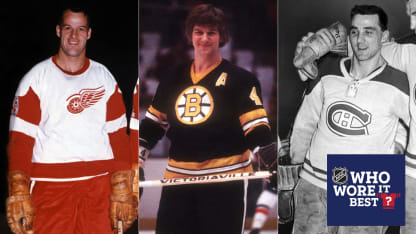The skinny:Howe is considered the greatest player in NHL history by Wayne Gretzky, the only player to score more goals than Howe (894). He won the Stanley Cup four times with Detroit (1950, 1952, 1954, 1955), the Hart Trophy as most valuable player in the League six times (1952, 1953, 1957, 1958, 1960, 1963), and the Art Ross Trophy as the League's leading scorer six times (1951, 1952, 1953, 1954, 1957, 1963). Howe, who is the Red Wings' leader in games played (1,687), goals (786) and points (1,809), was inducted into the Hockey Hall of Fame in 1972.

